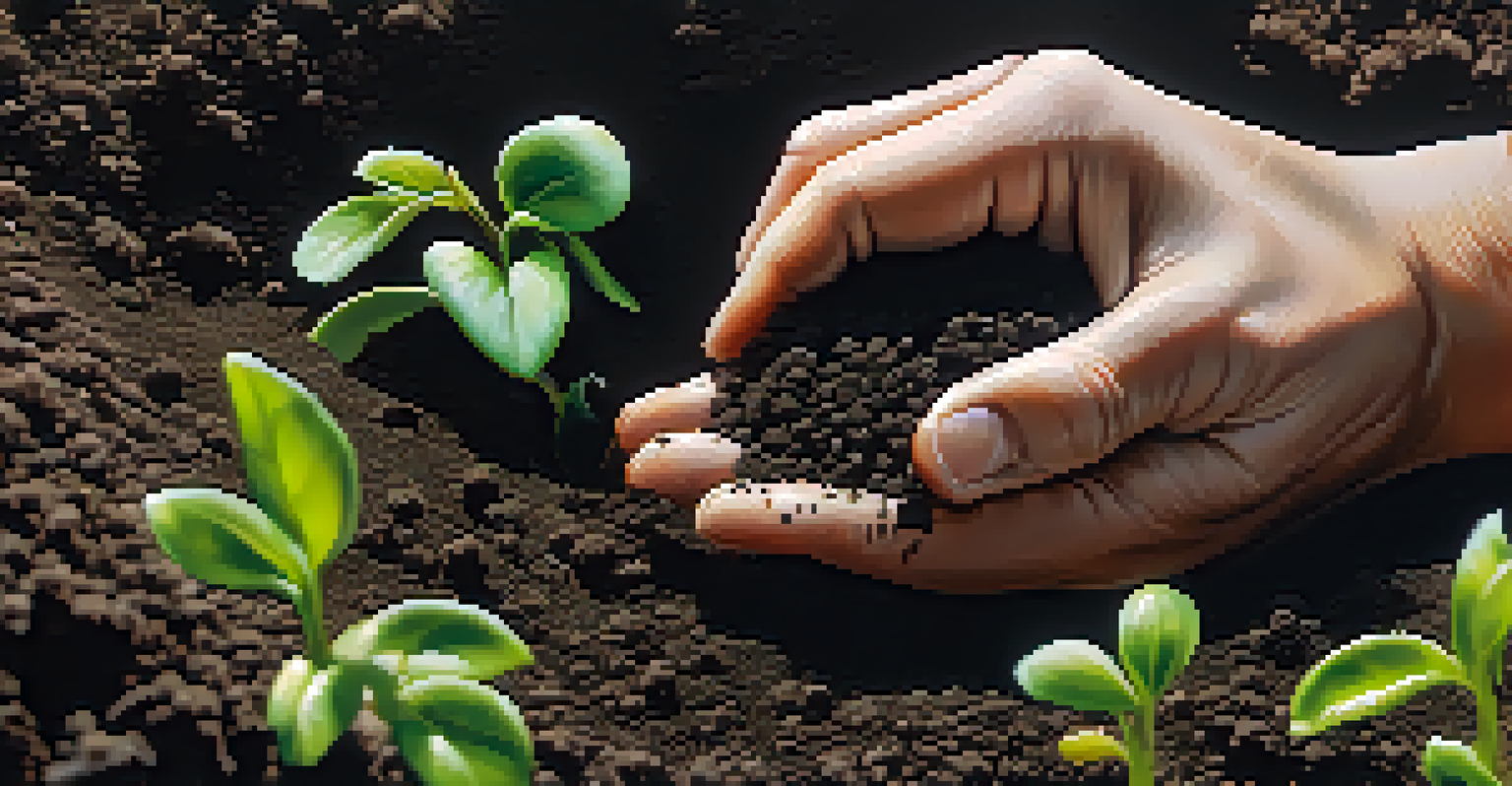Gardening as Therapy: Cultivating Mental Well-Being

Understanding Gardening as a Form of Therapy
Gardening, at its core, is more than just planting seeds and watering plants. It serves as a therapeutic activity that connects us to nature, promoting relaxation and reducing stress. This ancient practice has been recognized for its mental health benefits, as individuals often find solace and comfort in nurturing living things.
Gardening is a way of showing that you believe in tomorrow.
By engaging in gardening, people can create a personal sanctuary that encourages mindfulness and presence. The act of digging in the soil, planting seeds, and watching them grow can be incredibly grounding. It allows us to focus on the moment, pulling us away from the chaos of daily life.
Moreover, gardening provides a sense of purpose. When we cultivate a garden, we invest time and energy into something that flourishes, which can significantly enhance our self-esteem and emotional well-being.
The Psychological Benefits of Gardening
Studies have shown that gardening can lead to significant improvements in mental health. For instance, spending time in green spaces can lower levels of anxiety and depression. The simple act of tending to plants can elevate mood and promote feelings of happiness.

Gardening also encourages physical activity, which is another key component of mental well-being. As we dig, plant, and prune, we are not only nurturing our gardens but also our bodies. This movement can release endorphins, often referred to as 'feel-good' hormones, which boost our overall sense of well-being.
Gardening Reduces Stress and Anxiety
Engaging in gardening activities promotes relaxation, lowers anxiety levels, and enhances overall mental well-being.
Additionally, gardening fosters a sense of community. Whether through sharing tips with neighbors or participating in community gardens, these social connections can combat feelings of loneliness and isolation.
Mindfulness and Connection to Nature
Mindfulness is all about being present, and gardening naturally encourages this practice. As we immerse ourselves in the sights, sounds, and smells of our gardens, we learn to appreciate the world around us. This connection to nature can be a powerful antidote to the fast-paced, technology-driven society we live in.
To plant a garden is to believe in tomorrow.
When we garden, we become attuned to the changing seasons and the life cycles of plants. This awareness can help us reflect on our own lives and foster a deeper understanding of our emotions and thoughts. It's a gentle reminder of the beauty in growth and renewal.
Moreover, studies suggest that spending time in nature can reduce stress and promote relaxation. The sights of vibrant flowers and the sounds of rustling leaves create a soothing atmosphere that can help quiet a racing mind.
Creating a Therapeutic Garden Space
Designing a garden specifically for therapeutic purposes can be an exciting project. Start by choosing a space that feels inviting and peaceful, whether it’s a backyard, balcony, or even a windowsill. Incorporate comfortable seating where you can relax and enjoy the fruits of your labor.
Consider adding elements that stimulate the senses—fragrant herbs, colorful flowers, and even water features can enhance the experience. It's essential to create a space that resonates with you personally, as this will make your gardening journey even more fulfilling.
Connection to Nature Boosts Mindfulness
Gardening encourages mindfulness by immersing individuals in the natural world, fostering appreciation for growth and renewal.
Remember, a therapeutic garden doesn’t have to be grand. Even a small collection of potted plants can provide the same mental health benefits. The key is to make it a personal retreat where you can escape and recharge.
Gardening Activities for Mental Wellness
There are numerous gardening activities that can specifically promote mental wellness. Planting flowers, for instance, can be a colorful and joyful experience, while growing vegetables may provide a sense of accomplishment and self-sufficiency. Each task can be a meditative practice, allowing you to focus your mind.
Creating a garden journal is another great activity. Documenting your gardening journey, including the plants you’ve grown and the challenges you’ve faced, can be therapeutic in itself. This reflective practice helps reinforce positive feelings and encourages gratitude for your progress.
Additionally, participating in group gardening activities or workshops can enhance social connections while promoting mental well-being. Collaborating with others fosters a sense of community and shared purpose, which can be incredibly healing.
Overcoming Challenges in Gardening
Gardening, while rewarding, can come with its own set of challenges. From pests and diseases to unpredictable weather, it’s easy to feel disheartened when things don’t go according to plan. However, facing these challenges can also be an opportunity for growth and resilience.
Learning to adapt and finding solutions when things go wrong can enhance problem-solving skills and boost confidence. It's a reminder that setbacks are a natural part of any journey, including our mental health journey. Embracing these challenges can ultimately lead to a greater sense of accomplishment.
Therapeutic Gardens Enhance Mental Health
Creating a personal garden space filled with sensory elements can serve as a retreat, promoting emotional well-being and self-care.
Moreover, sharing these experiences with fellow gardeners can create bonds and provide support. By discussing struggles and sharing advice, we can cultivate a community that uplifts and encourages one another.
Integrating Gardening into Daily Life
To truly benefit from gardening as a form of therapy, it's essential to integrate it into your daily life. Even dedicating just a few minutes each day to tending to your plants can bring moments of joy and relaxation. This consistent practice can help create a routine that fosters mental well-being.
Consider setting small, achievable gardening goals, such as planting a new herb or maintaining a potted plant. These tasks can act as a form of self-care, reminding you to slow down and take time for yourself amidst your busy schedule.

Ultimately, the key lies in finding joy in the process of gardening rather than focusing solely on the end results. Embrace the journey, and let each time spent in the garden nurture not just your plants but your mind and soul.